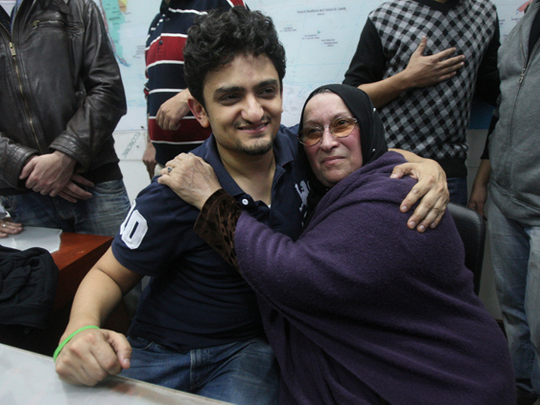
Dubai: Wael Ghonim, Google’s Middle East North Africa Marketing Manager, tweeted that the mission is accomplished and Egyptian demonstrators will get what they have been demanding for the past 17 days.
He urged his counterparts not to speculate about the role of the army even if the announcement made 20 minutes ago means that the army will assume power. He said no one can steal the revolution of the people, including the army.
Ghonim thanked all Egyptians who took part in the revolution and others who supported the demonstrators, including those offered their offices and communication facilities for youth leaders in the Tahrir Square.
- Duraid Al Baik, Associate Editor
Cairo: Wael Ghonim, a Google executive who emerged as a prominent voice of Egyptian protests against President Hosni Mubarak, promised on Thursday to stay out of politics once the dissidents' demands are met.
The 30-year-old was freed Monday after 12 days in custody, and was swiftly propelled to the forefront of the popular uprising, addressing huge crowds in Tahrir Square, the epicentre of the protests against Mubarak.
"I promise every Egyptian that I will go back to my normal life & not be involved in any politics once Egyptians fulfill their dreams," he wrote on his Twitter account.
In an interview with CNN on Wednesday, Ghonim, Google's marketing chief for the Middle East and North Africa, said he was "ready to die" for the cause.
"I have a lot to lose in this life," he said, adding "I'm telling you, I am ready to die."
Ghonim appeared in an emotional interview on Egypt's Dream 2 television channel after his release, and his powerful reaction has become an Internet hit and a recruiting tool for a protest movement now entering its third week.
Some credited the interview with revitalising protests against Mubarak, who has ruled for 30 years and, despite concessions to protesters, says he will not step down until his term expires in September.
With inputs from agencies













